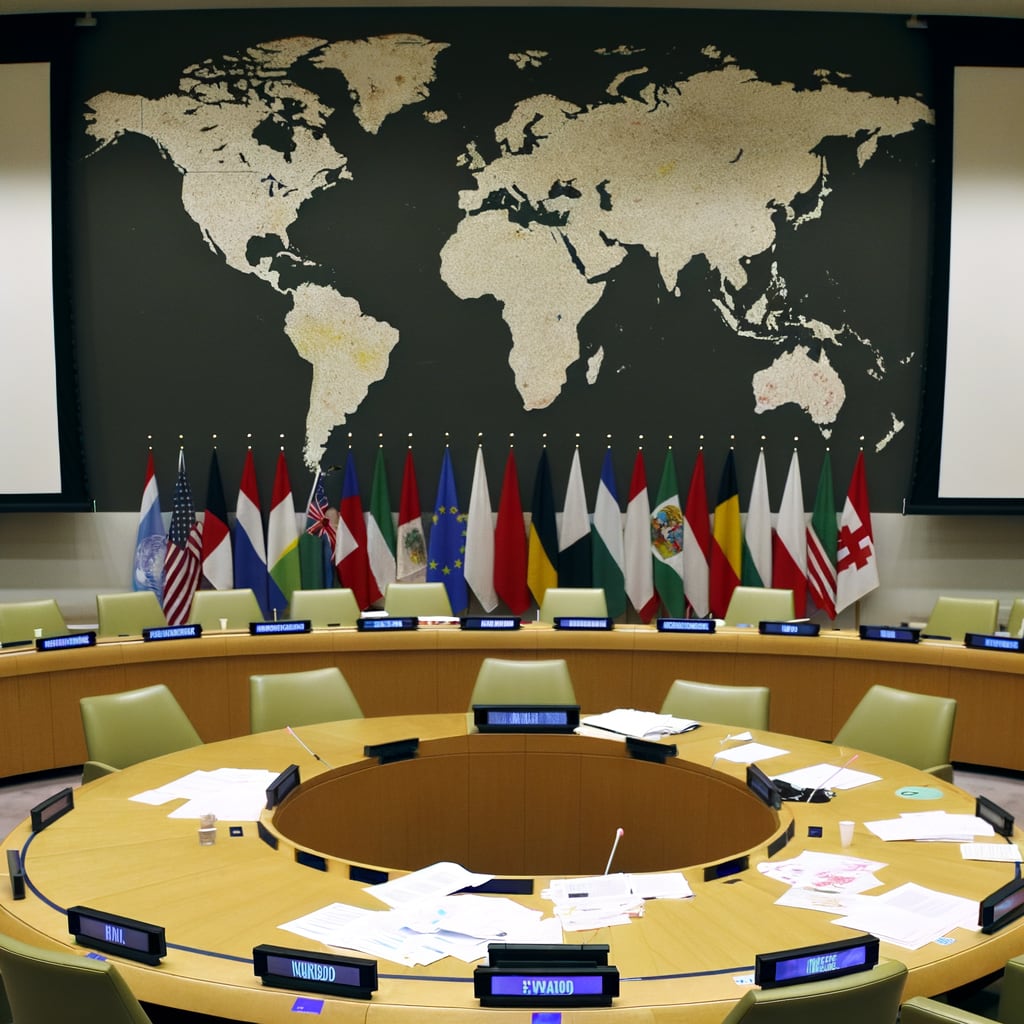European Trio Triggers 'Snapback' Mechanism to Reinstate UN Sanctions on Iran, Tehran Warns of 'Strong Reaction'
In a significant development that is likely to escalate tensions, the UK, France, and Germany, collectively known as the E3, have initiated the 'snapback' mechanism to reinstate United Nations sanctions against Iran over its nuclear program. This move comes in response to Tehran's non-compliance with the 2015 nuclear deal, and is expected to have severe implications for future diplomatic engagement and non-proliferation efforts.
Background and Context
The E3's decision to activate the 'snapback' mechanism follows months of warnings from European leaders, along with years of calls from the U.S, flagging Tehran's violation of nuclear agreements made under the 2015 Joint Comprehensive Plan of Action (JCPOA). Iran has been warned that any attempt to trigger the 'snapback mechanism' would severely impact Tehran's cooperation with the International Atomic Energy Agency (IAEA) and end diplomatic engagement with Europe.
The process to reimpose sanctions was initiated on Thursday, with a 30-day window before the sanctions 'snapback' comes into force. This move follows two months after Israel and the United States bombed Iranian nuclear program sites, further increasing tensions in the region.
Key Developments
The E3 submitted a letter formally notifying their request to activate the snapback to the President of the United Nations Security Council. This decision has not been taken lightly by the E3 and has been preceded by intensive diplomacy to try to avert this step.
Despite the ongoing efforts, talks failed to produce concrete commitments from Tehran, prompting the Europeans to trigger the 'snapback' of UN sanctions over alleged violations of the accord. The International Atomic Energy Agency, however, noted it has no credible evidence of a coordinated weapons project within Iran’s nuclear program.
Implications and Reactions
As per a report in the Tehran Times, a high-level informed Iranian source warned that activating the disputed 'snapback' mechanism would force a 'very strong' reaction from Iran. This step could deal a serious blow to global non-proliferation efforts and permanently destroy the path of diplomacy.
Russia, in its response, blamed President Donald Trump's decision to withdraw the U.S. from the 2015 nuclear agreement with Iran as the real source of the problem. Dmitry Polyanskiy, Russia’s UN Ambassador, suggested that since the U.S abandoned JCPOA, the situation started to deteriorate.
The US has welcomed the reinstatement of anti-Iranian sanctions launched by the E3. US Secretary of State Marco Rubio noted that they will work with E3 and other Members of the UN Security Council to successfully complete the snapback of international sanctions and restrictions on Iran.
Conclusion
With the E3 at a decisive moment over the snapback mechanism, the UN Security Council now faces a choice between supporting the draft resolution proposed by Russia and China to extend diplomatic engagement or activating the snapback mechanism. The annual high-level UN general assembly in September is likely to see intensive diplomacy over how to handle Iran. The situation remains tense and fraught with potential geopolitical ramifications.

